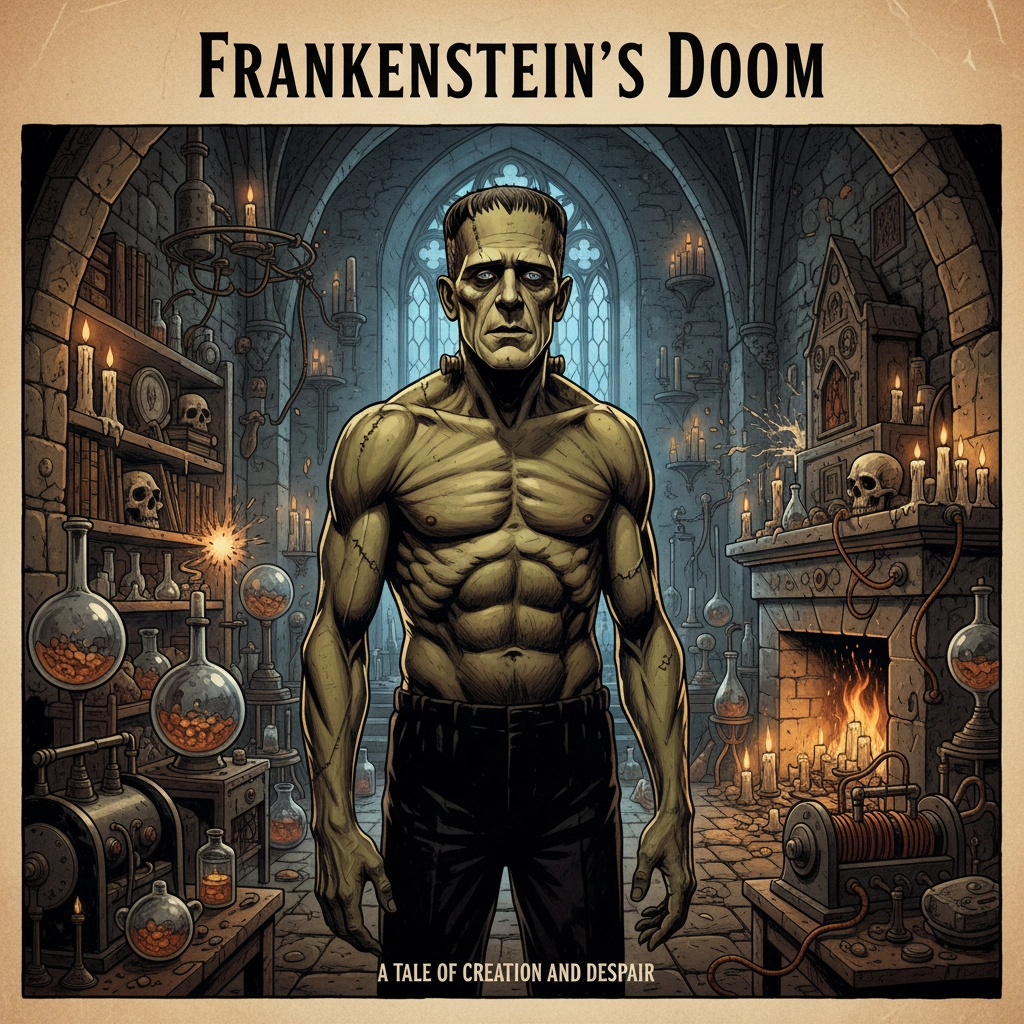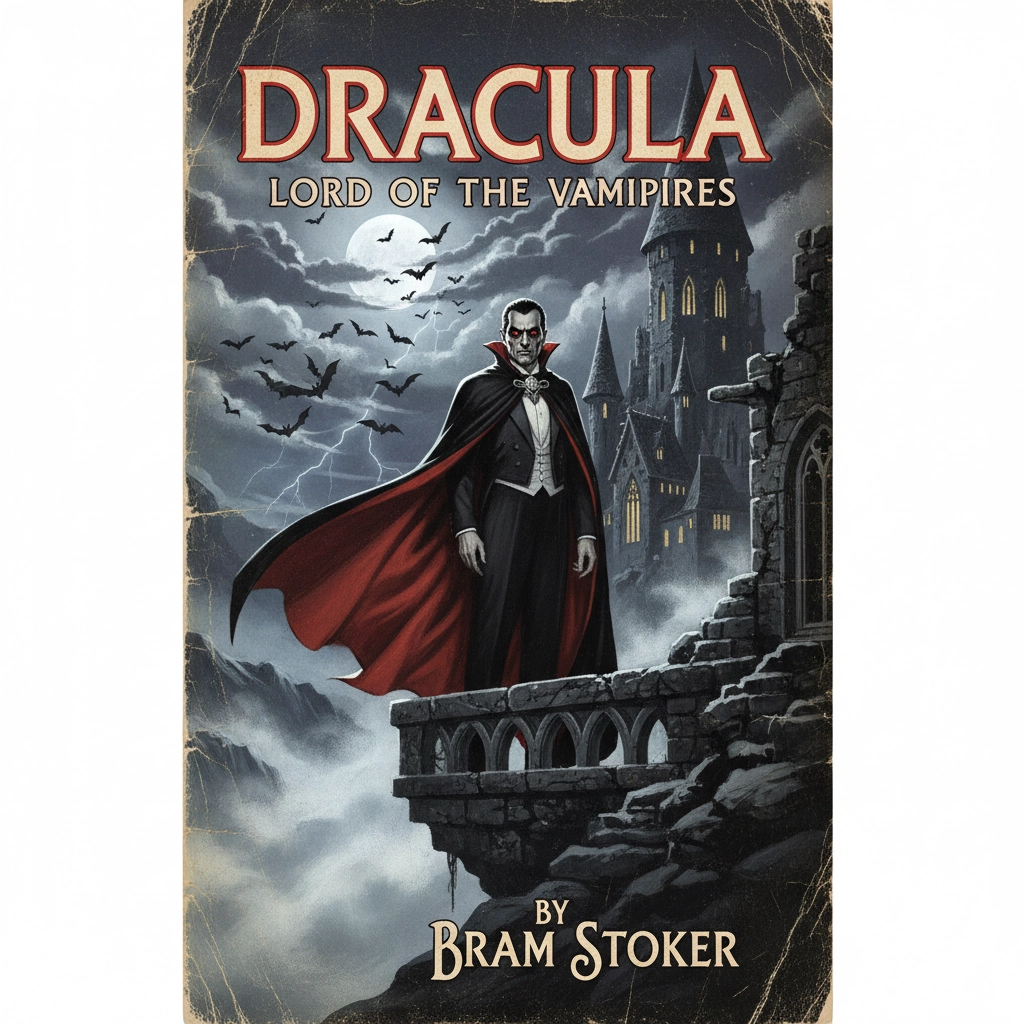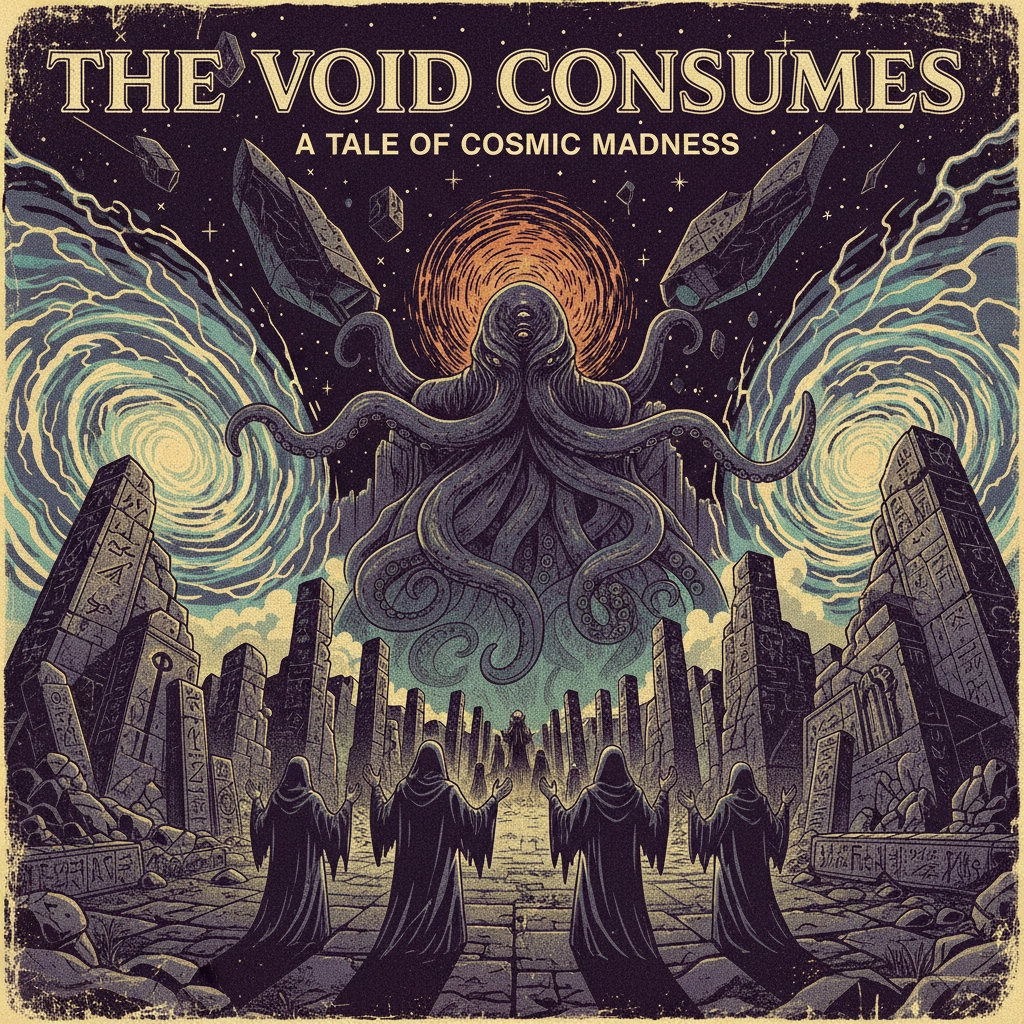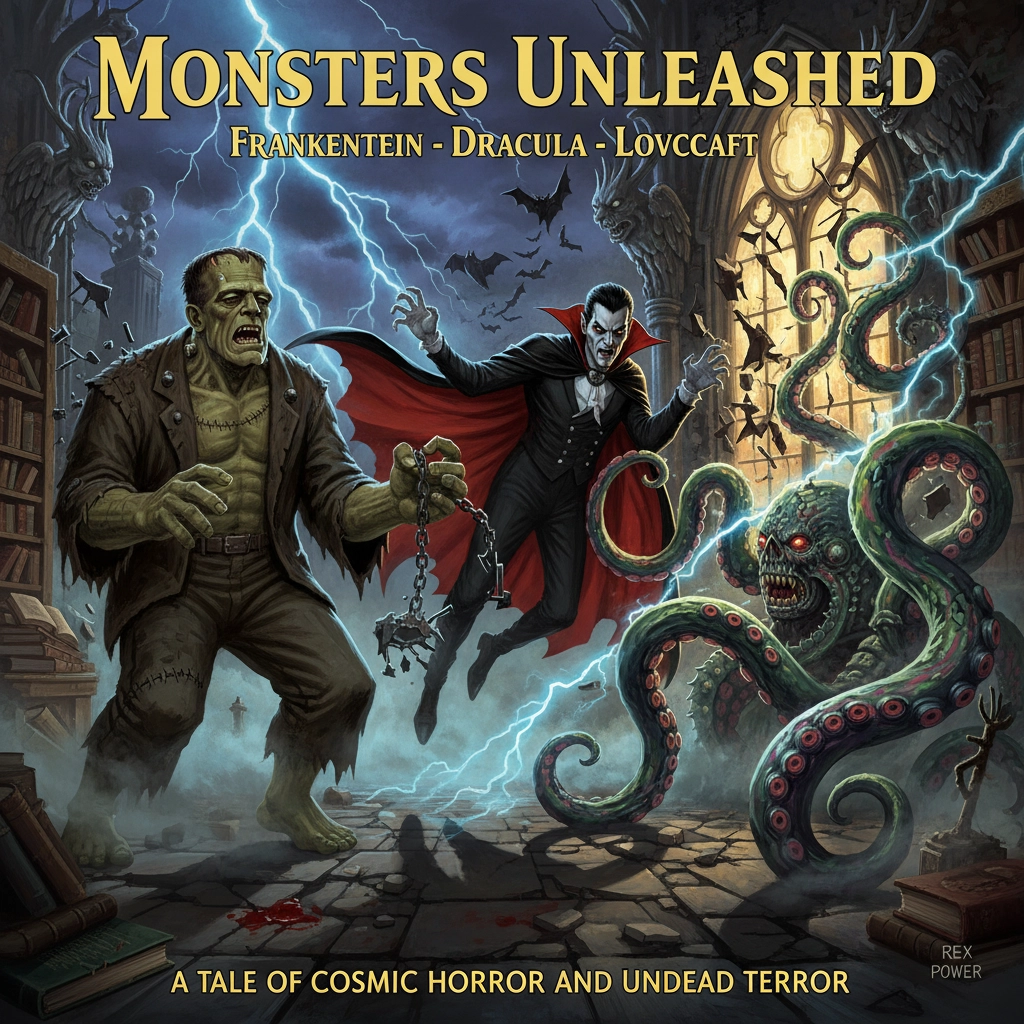Dracula vs Frankenstein vs Lovecraft: Which Classic Monster Should Inspire Your Next Adventure Novel?
- Edgeweaver

- Oct 8, 2025
- 5 min read
Choosing the right monster for your adventure novel isn't just about picking something scary – it's about selecting a narrative foundation that will shape every aspect of your story. The classic triumvirate of horror literature offers three distinctly different approaches to terror and adventure, each with unique strengths for modern storytelling.
When you're crafting an adventure novel, your choice of monstrous inspiration determines not only your antagonist but your entire thematic framework. Dracula, Frankenstein's Monster, and Lovecraftian entities each offer different pathways to compelling adventure fiction, and understanding their core differences will help you make the right choice for your story.
The Tragic Complexity of Frankenstein's Monster
Frankenstein's Monster stands apart as perhaps the most psychologically complex villain in classic literature. Unlike other monsters, this creature possesses intelligence, articulate speech, and most importantly, the capacity for genuine emotional suffering. The monster experiences "the despair and the loneliness that comes with being a beast," creating a character that readers can both fear and pity.
What makes Frankenstein's creation particularly powerful for adventure novels is his role as "a man living inside a monster." He desperately longs to join the world that reviles him, driven to evil not by inherent nature but by isolation and rejection. This creature represents "a human mind living inside a body that can never be human," offering rich opportunities for moral complexity in your adventure narrative.

For adventure novelists, Frankenstein's Monster provides several unique advantages. The creature's intelligence allows for sophisticated dialogue and character development beyond simple antagonist roles. His tragic origin story creates natural opportunities for redemption arcs or unlikely alliances. The themes of creator responsibility and scientific hubris remain remarkably contemporary, making stories inspired by Frankenstein feel relevant to modern audiences.
The monster's vulnerability also creates more dynamic action sequences. Unlike truly supernatural threats, Frankenstein's creation can be reasoned with, trapped, or even wounded, allowing for more varied and strategic encounters in your adventure plot.
Dracula: Evil Incarnate and Perfect Predator
Dracula represents a fundamentally different approach to monstrous antagonism. Where Frankenstein's Monster seeks acceptance, Dracula embodies "evil incarnate" – a predator who exists purely to feed on human blood and achieve immortality. This vampire operates as "a poison: sapping the life force out of all his victims" with no remorse or moral complexity.
What makes Dracula compelling for adventure fiction is his active malevolence. Unlike Frankenstein's reluctant monster, Dracula has "engineered his own monstrosity" through deliberate choice. He represents selfishness and the desire to "live for eternity as a god," creating clear stakes and moral boundaries for your heroes to navigate.
The vampire mythology offers adventure writers a rich supernatural framework with established rules that readers understand. Dracula's weaknesses – sunlight, crosses, running water – create natural puzzle elements for your heroes to exploit. His seductive danger adds layers of tension beyond simple physical threat, particularly effective in adventure stories with romantic subplots.
Dracula's global reach and centuries of experience make him suitable for grand-scale adventures. His ability to influence others through supernatural means creates opportunities for conspiracy plots and trust issues among your heroic ensemble. The vampire's immortality also allows for historical adventure elements, connecting past and present in compelling ways.
Lovecraftian Horror: Cosmic Scope and Existential Terror
H.P. Lovecraft's cosmic horror represents the third path available to adventure novelists, one that operates on an entirely different scale than personal or regional threats. Lovecraftian entities like Cthulhu embody cosmic indifference – ancient beings whose very existence challenges human understanding of reality.
The strength of Lovecraftian inspiration lies in its scope for epic adventure combined with psychological horror. These stories naturally involve investigation, discovery, and gradual revelation of truths that test characters' sanity. The unknowable nature of cosmic entities creates tension that goes beyond physical danger, threatening the very foundations of your characters' worldview.

For adventure novels, Lovecraftian elements excel at creating mystery-driven plots. Ancient artifacts, forbidden knowledge, and cults devoted to incomprehensible entities provide natural adventure hooks. The global or even universal scope of cosmic threats allows for wide-ranging adventures across different locations and time periods.
However, Lovecraftian horror requires careful handling in adventure fiction. The nihilistic implications of cosmic insignificance can overwhelm traditional adventure themes of heroism and triumph. Successful Lovecraftian adventures often focus on the journey of discovery rather than final victory, emphasizing survival and sanity preservation over conventional triumph.
Comparative Analysis for Adventure Writers
Each classic monster offers distinct advantages for different types of adventure stories. Understanding these differences helps you align your choice with your narrative goals.
Character Development Opportunities:
Frankenstein's Monster: Maximum depth and moral complexity
Dracula: Clear antagonist with seductive danger
Lovecraftian Entities: Focus shifts to human characters facing incomprehensible threats
Action and Pacing:
Frankenstein's Monster: Intimate, character-driven encounters
Dracula: Dynamic cat-and-mouse pursuits with supernatural elements
Lovecraftian Horror: Slow-building tension with explosive revelations
Thematic Potential:
Frankenstein's Monster: Responsibility, identity, what defines humanity
Dracula: Good versus evil, temptation, corruption
Lovecraftian Horror: Limits of knowledge, humanity's place in the cosmos

Scope and Setting:
Frankenstein's Monster: Personal scale, intimate settings
Dracula: Regional threats, Gothic European atmosphere
Lovecraftian Horror: Global or cosmic scale, varied exotic locations
Practical Recommendations for Your Adventure Novel
Choose Frankenstein's Monster if you're writing character-driven adventures that explore moral complexity. This works exceptionally well for stories where the traditional monster becomes an unlikely ally or where your heroes must grapple with questions of right and wrong. The framework supports subversive takes on adventure tropes and allows for deep emotional investment from readers.
Consider Dracula for action-oriented adventures with clear heroic objectives. This classic vampire excels in ensemble cast stories, globe-trotting pursuits, and adventures that balance Gothic atmosphere with dynamic confrontations. The established vampire mythology provides familiar territory for readers while offering flexibility for creative interpretation.
Select Lovecraftian Horror for mystery-driven adventures emphasizing investigation and discovery. This approach suits stories where the journey matters more than defeating the monster, because the entities might be undefeatable. It's perfect for adventures involving ancient secrets, forbidden knowledge, and the psychological toll of confronting the unknowable.
Contemporary Applications and Relevance
Modern adventure novels benefit from updating these classic inspirations for contemporary audiences. Frankenstein's themes of scientific responsibility feel especially relevant in our age of genetic engineering and artificial intelligence. The monster's struggle with identity resonates with modern discussions of belonging and acceptance.
Dracula's predatory nature translates well to stories about power dynamics and exploitation, while his immortality allows for historical adventure elements that connect past and present. Contemporary vampire stories often explore themes of addiction, privilege, and the cost of eternal life.
Lovecraftian horror has found new relevance in our interconnected world, where global threats and information overload create their own forms of cosmic horror. Modern interpretations often explore how ancient entities might interact with technology and global communication.

Making Your Final Choice
The best choice for your adventure novel depends on your specific goals and target audience. Consider what type of fear you want to evoke: sympathy and moral complexity (Frankenstein), traditional horror with clear stakes (Dracula), or existential dread with cosmic scope (Lovecraft).
Think about your adventure's scale and pacing preferences. Personal, intimate adventures suit Frankenstein's approach, while regional threats work well with Dracula's methodology. Global or cosmic adventures naturally align with Lovecraftian themes.
Consider your comfort level with moral ambiguity. Frankenstein's Monster requires nuanced handling of complex ethical questions, while Dracula offers clearer moral boundaries. Lovecraftian horror often operates beyond traditional moral frameworks entirely.
Your choice of classic monster inspiration will influence every aspect of your adventure novel, from character development to plot structure to thematic depth. Each offers proven storytelling frameworks with built-in audience recognition, but success depends on understanding their unique strengths and aligning them with your creative vision.
By carefully considering these three classic approaches, you can select the monstrous inspiration that best serves your adventure story's goals and creates the most engaging experience for your readers.




Comments